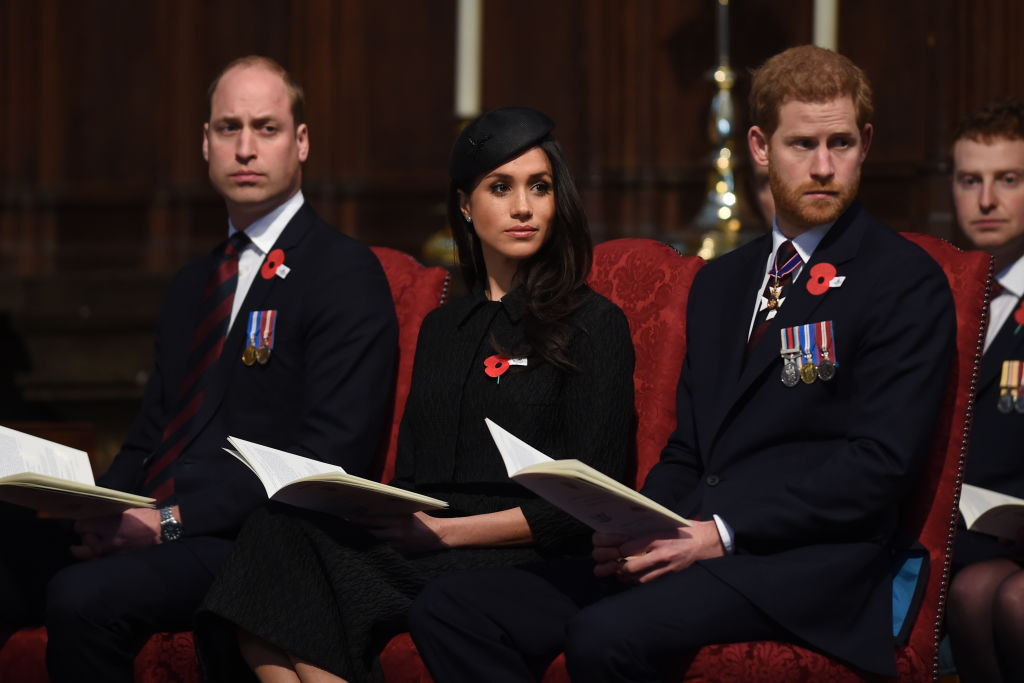There is no greater tabula rasa in the public imagination than grief. Prince Philip’s four children – no strangers to the glare of public interest – now find themselves the target not of global ire, but rather unusually, of collective sympathy. For public figures, the warm light of communal compassion imbues recognition and significance on the lives of lost loved ones; their grief is one that is shared, which must be a consolation. But in today’s 24/7 news cycle public grief of this kind comes with its own pressures and expectations.
In the annals of Royal public relations, this should be a relatively straightforward chapter. Approval for the Royal family soars amid a public outpouring of hagiography, and all is well. When the Queen Mother died in 2002, the statements that followed were fond and fair: Prince Charles spoke of his ‘darling grandmother’ who had served ‘this ancient land with panache, style and unswerving dignity’ while the Queen spoke of her ‘beloved mother’, eliding mother and country gracefully together. But Prince Philip was, in many ways, the most unprecedented of Royals and these are the most unprecedented of times for the Windsors. A Prince has died during a pandemic and the family is still reeling from the bombshell accusations of racism made by its younger members from across the Atlantic. A formulaic statement of grief will no longer suffice. In the era of social media and constant news-flow, the stakes are higher, the scrutiny more intense, the public more demanding. The management of public mourning is no small task.
Thus far, all four of Prince Philip’s children have issued statements of some sort, as have Prince William and Prince Harry. Prince Charles, heir apparent and eldest son led the way with his careful message, tightly choreographed outside Highgrove. He thanked the public thoughtfully even making diplomatic mention of the Commonwealth. But it was in his mention of ‘dear Papa’ that he really showed how far his public relations mettle has improved since the Dimbleby interview, granting his audience the slenderest of views into their private relationship, distilling it into simple sentimentality. Princess Anne for her part, played the stoic card, tallying in with our public understanding of her – brisk and horsey, to the point; ‘you’re never really ready.’
But it is Prince Andrew who, once again, gives a public relations masterclass in how not to do it. Standing outside St George’s Chapel, the Duke of York spoke of his father and the collective grief of the pandemic before eventually winding up with ‘the grandfather of the nation’ soundbite as his brother Prince Edward stood around chatting to the clergy. Choreographed this was not. Prince Edward has left the real talking to his wife, the Countess of Wessex, who memorably worked in communications herself. We have her to thank for the immortal ‘it was like someone took him by the hand and off he went’ aperçu, improbably seized upon by almost every single media outlet.
William and Harry’s statements came with moments of each other but separately. In a statement released on his Archewell website accompanied by a photo of Harry and Prince Philip wearing Remembrance Poppies, Harry spoke of service but also of ‘banter’, ‘beers’ and ‘barbecues’, striking a colloquial tone in keeping with both his new Californian life and his decision to part ways with his royal role. Here was Prince Philip as your grandfather, chivvying you on, cracking jokes at family gatherings. There was a strong emphasis on the military: he began with poppies and ended on the Marines. His decision to round off the Royal Marines motto: ‘Per Mare, Per Terram’ underscored the military title he inherited from his grandfather, which was reluctantly forfeited when he stepped back from royal duties. Thus the ghost of Megxit still managed to rear its head.
Prince William’s release was an altogether more sober affair, though no less pointed. He spoke of service: ‘an extraordinary man’ in the context of an ‘extraordinary generation’. Like Harry, he made mention of his family, appending his statement with a picture of Prince Philip and his son George on a carriage drive, generations apart but seated together. His words will be picked over, but none more so than his declaration to ‘get on with the job’ with his wife beside him, a possible swipe at his brother and a written intention to emulate his grandfather.
Public mourning in the current era is wrought with political complexities. Long gone are the days when a framed announcement outside Buckingham Palace will do. In a society where immediacy is the order of the day, multiple and personalised outpourings of grief are required for us to ‘like’ and ‘share’ in order for the loss to leave its mark on the public consciousness. And herein lies the danger: the more statements that are made, the greater the scope for contradiction and subtext – unintended or otherwise.






Comments